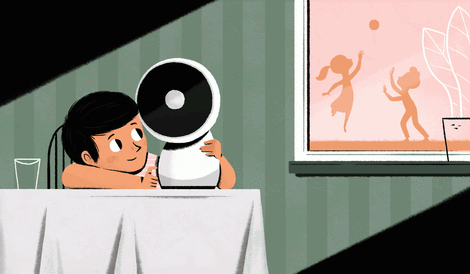Your podcast discovery platform
Curious minds select the most fascinating podcasts from around the world. Discover hand-piqd audio recommendations on your favorite topics.

piqer for: Global finds Technology and society
Prague-based media development worker from Poland with a journalistic background. Previously worked on digital issues in Brussels. Piqs about digital issues, digital rights, data protection, new trends in journalism and anything else that grabs my attention.
Why Social Robots Make Terrible Presents For Kids
Social robots are on their rise and it isn't just because of BB-8 back on the screens with the new Star Wars movie. The likes of Jibo, Kuri or Cozmo feature on many of this year's lists of "Best tech toys for Christmas". Designed to interact, social robots use speech, facial expressions and body language to communicate their state and intentions, mimicking animals or humans. In a nutshell, they are cuter versions of AI-powered smart home assistants or less messy substitutes for a dog. You may think they sound like a great gift for a kid, but actually, the Washington Post advice is to think twice before buying one.
"These machines are seductive and offer the wrong payoff: the illusion of companionship without the demands of friendship, the illusion of connection without the reciprocity of a mutual relationship. And interacting with these empathy machines may get in the way of children’s ability to develop a capacity for empathy themselves," writes the author.Written by Sherry Turkle, a professor at MIT, the Washington Post article isn't a Christmas gift guide. In fact, this thought-provoking piece is best suited for someone who wonders what impact AI might have on humans. Bringing together different arguments, from concerns over emotional deception to questions of privacy, the article carefully examines the potential dangers that robot companions pose, not only to a child's emotional development but also the entire society in the long term. The conclusion can be summarised by this line: "simulated thinking may be thinking, but simulated feeling is never feeling, and simulated love is never love."

Source: Sherry Turkle Image: Eugene & Louise f... washingtonpost.com